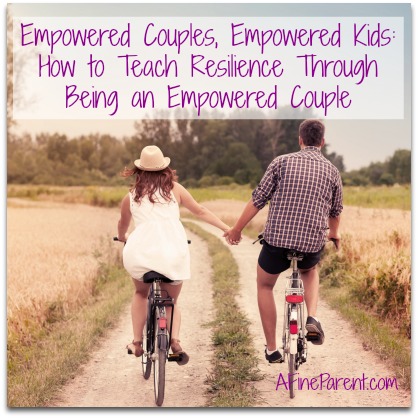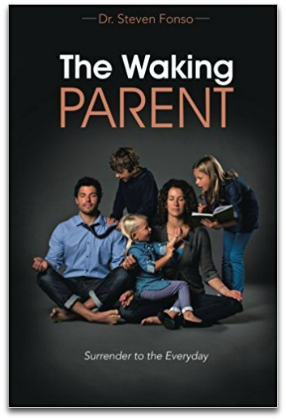 There is an old saying that we are programmed and hardwired in our first decade of life from our MFPT; mothers, fathers, preachers, and teachers. These relationships, and the health of them, have a profound impact on how we define what a healthy relationship should look like.
There is an old saying that we are programmed and hardwired in our first decade of life from our MFPT; mothers, fathers, preachers, and teachers. These relationships, and the health of them, have a profound impact on how we define what a healthy relationship should look like.
Think of your parents. How they interacted, communicated, touched, and related had a profound impact on your choices and expectations when it came to your boyfriends and girlfriends, the friends you have and your sphere of trust.
We as parents have an opportunity to help set in, deep within the “wiring” of our children, what a healthy, vital, and loving relationship can look like. We have a dramatic impact on their standards to navigate their own relationships.
The parent interaction is the most important relationship your children will observe. It has the most amount of influence on their body and mind, because for no other reason than you are their parents. Children learn through modeling. They watch your every move, listen to every word, and see how you express yourself in a variety of different situations.
Why?
As robotic as it may sound, they are being programmed. They are actively absorbing information on how to live, what gets them approval, attention and love, and how to respond to stressors and challenges. And this information drives deep into the brain and body.
It is our actions and reactions as a couple that can have a dramatic impact on how children create expectations of healthy relationships. Although they are seeping into the unconscious, our behavior as parents helps to define love between two people; physical boundaries, communication style (verbal and non-verbal) posturing under stress, when to embrace or push away, and how to resolve conflict.
This is how traits, expressions, and even problems “run” in families. Through our actions as a couple, we teach our kids. We show them how to be resilient, relate, rebound and resolve through our daily actions. Yes, we can sit down with them and talk to them consciously, and we can also be responsible and allow our actions to be unconsciously modeled for their future.
We all handle challenge differently. Let’s face it, relationships can be tough. Do you ever have those times where you are having the most difficult time opening up and loving your spouse? Or those times where there is an unspoken irritation between the two of you? Those times where you go for a quick kiss only to feel the coldness, or where they are trying to talk and you just feel closed off from connecting?
There is no doubt that when you have two adults living under the same roof, disagreements, arguments, and misunderstandings do happen. It’s a reality.
The question is, when tensions rise, how do you handle yourself? Do you scream as you yell down the hallway and slam the door? Do you confront your spouse loudly and aggressively? Do you turn your head and eyes away in conflict? Do you get snippy and irritated quickly? Do you simmer and stew for days without a resolution?
In many cases, how you respond right now in a relationship, is a pattern you observed from your parents.
Getting to love…quicker
 Wouldn’t the home be more pleasant and loving if we could be more resilient, spring back a little quicker, not stew for so long, and reconnect as soon as possible? Through the eyes of the relationship mastery, the ups and downs, closed and openhearted and rigid and flexible times, are just that; moments in time.
Wouldn’t the home be more pleasant and loving if we could be more resilient, spring back a little quicker, not stew for so long, and reconnect as soon as possible? Through the eyes of the relationship mastery, the ups and downs, closed and openhearted and rigid and flexible times, are just that; moments in time.
When given the right way, or shall I say “expanded” way, to look at relationships, you lessen the likelihood of major crashes and outburst, and increase the likelihood of quickly rebounding and getting back to heart of love.
5 Essential Steps to Return to Love
1. Awareness
Being aware of yourself and your emotional state is your cornerstone to success irregardless of the endeavor, and pertaining to relationships, emotional awareness is part of that personal mastery piece that must be the first step. How am I feeling right now in this moment? What am I doing right now?
2. Breathe
As you become aware of yourself and your behavior, it may serve you and your partner, to take a breath. By you taking a moment to show an element of poise, allows the other to self regulate their state, at least for a moment. By taking that breath, you decrease stress hormones and your instinct to guard your body, ideas, thoughts, rules and opinions begin to subside.
3. Connect
The connection between the both of you happen when you connect to yourself first. Losing composure and heading back into being snippy, argumentative and critical words is you being disconnected. Build poise as you wait for them to garner their energy, emotions and clarity.
The connection happens faster when you show them you are listening, attentive and valuing their expression and who they are in that moment. By holding connection within yourself and extending that to the other through a loving, centered awareness, increases the likeliness of them softening their guards toward a heart-warming resolution.
4. Dedication
 You must be dedicated to a loving outcome. You must be willing to patiently wait in dedication for both souls to unite in love as the guards and defensiveness melt away. We all know the pleasant feeling when we melt into each other and that is the end we are dedicated to.
You must be dedicated to a loving outcome. You must be willing to patiently wait in dedication for both souls to unite in love as the guards and defensiveness melt away. We all know the pleasant feeling when we melt into each other and that is the end we are dedicated to.
Your unwavering dedication to love will be felt by the other where it will be tremendously difficult to hold their defensive position. The individual who is more aware in the moment, must be dedicated to ‘holding that space’.
5. Embrace
Embrace is the gold at the end of the rainbow and will come about faster than expected. Building high levels of resilience in relationships gets us back to love where we can embrace each others’ uniqueness, ideas, thoughts, needs and values so we can be of best service in our relationships with one another.
As we embrace in love we remember that relationships is about meeting the needs of the other, while they meet our needs. The mutual focus of supporting each other with what is most important is the fuel to create lasting, loving and growth oriented relationships.
This is how we can teach our children to resolve conflict, embrace differences of opinions, and come to a peaceful resolution. We are not sheltering them from anger or criticism, but we are showing them that you can eventually transcend those qualities to return to a place of love. And chances are, the evening in the bedroom will be much more enjoyable than continuing to stew.
 In his first book written called The Waking Parent, Dr. Steve brings a flare to parenting that is rooted in spiritual principles combined with the practicality of everyday life. He weaves together his experience as a practitioner, healer and philosopher to assist parents in seeing the root cause to distress, and what pulls them away from love. He brings this experience of health, healing and personal development to his audience as he has assisted over 115,000 people on their healing journey.
In his first book written called The Waking Parent, Dr. Steve brings a flare to parenting that is rooted in spiritual principles combined with the practicality of everyday life. He weaves together his experience as a practitioner, healer and philosopher to assist parents in seeing the root cause to distress, and what pulls them away from love. He brings this experience of health, healing and personal development to his audience as he has assisted over 115,000 people on their healing journey.
Leave a Reply